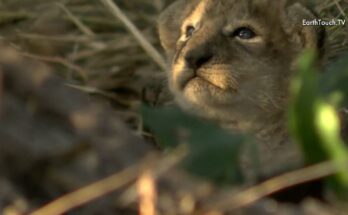
In the wild, the behavior of male lions killing lion cubs may appear shocking and cruel to observers, but it serves a strategic purpose in the natural world. This act, known as infanticide, is a common phenomenon in lion prides and is deeply rooted in evolutionary biology.
When a new coalition of male lions takes over a pride, they often kill the existing cubs that were fathered by the previous males. This brutal behavior has a clear purpose: female lions that are nursing cubs do not go into estrus, the period when they are fertile and receptive to mating. By killing the cubs, the new males stop the females from lactating and trigger them to become fertile again. This allows the new dominant males to mate and pass on their own genes, rather than raising the offspring of their rivals.
While this behavior benefits the dominant males from a genetic standpoint, it comes at a high emotional and physical cost. Lionesses fiercely defend their young, often fighting the males to protect their cubs, but they are rarely successful against stronger coalitions. Once the cubs are gone, the females usually submit to the new males and begin mating, starting the pride’s reproductive cycle anew.
This harsh aspect of lion society highlights the role of competition and survival in the animal kingdom. Infanticide may seem heartless, but it serves a purpose in the lions’ natural strategy for dominance and reproduction. It also ensures that only the strongest males, capable of seizing and maintaining control of a pride, get to pass on their genes.
Although difficult to witness, this behavior is a reminder that nature operates by its own rules — often driven by survival, dominance, and the instinct to reproduce.


